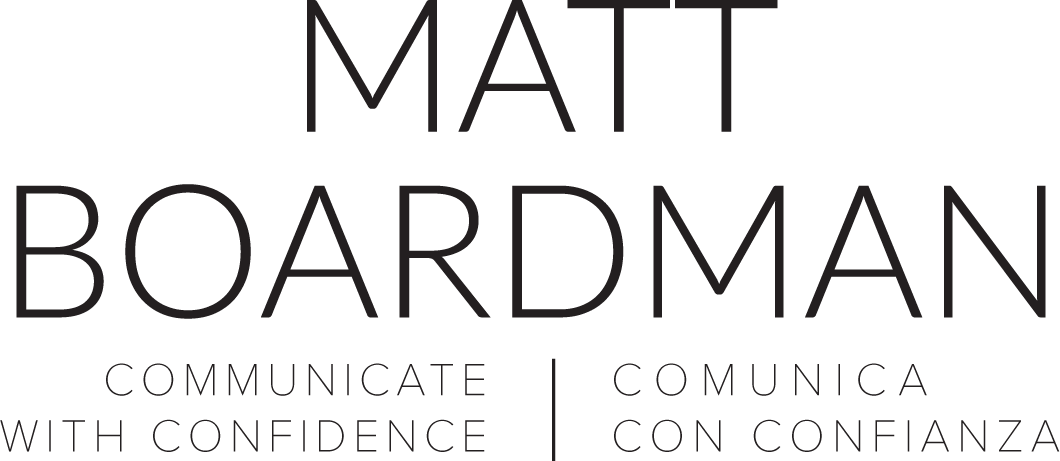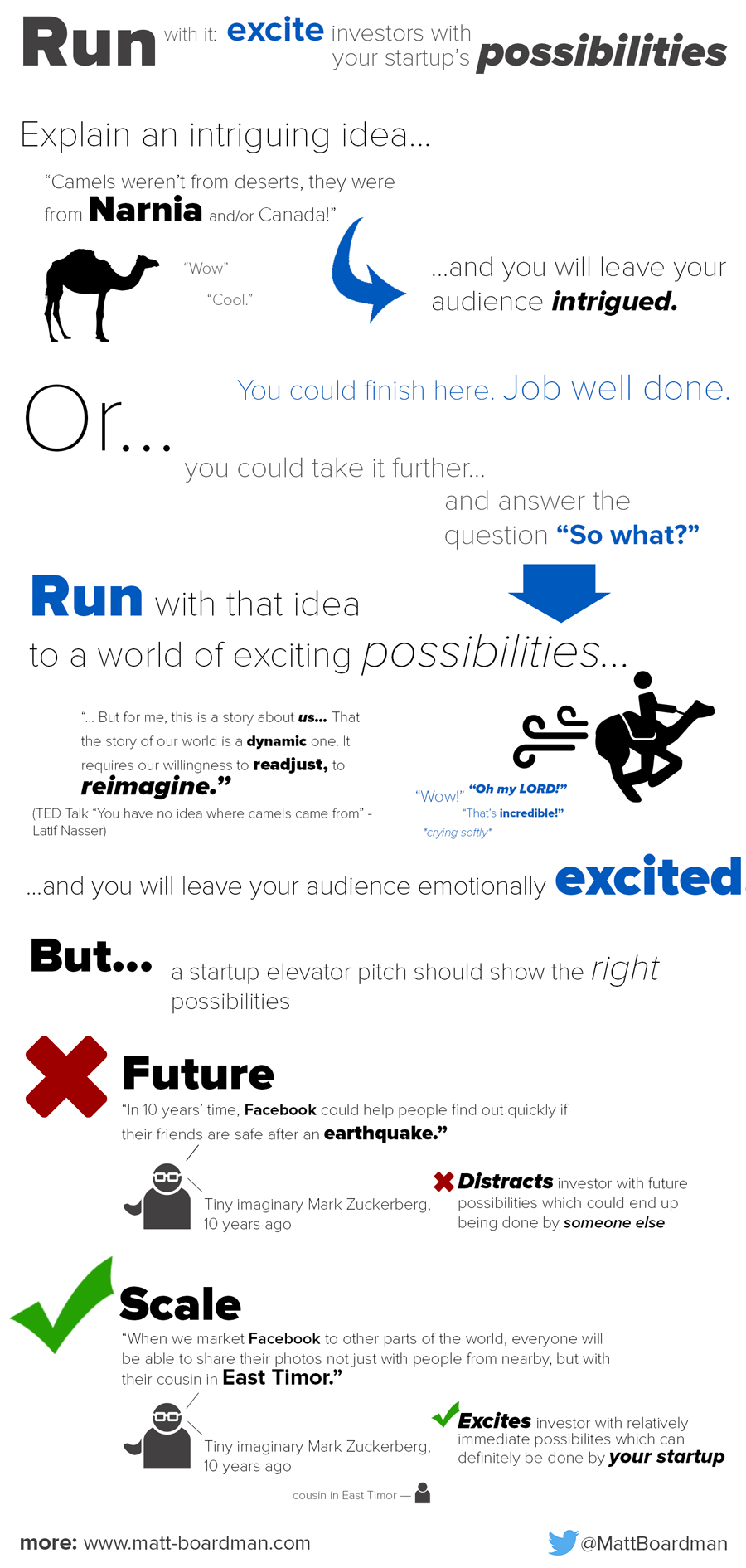How do you excite an investor with your elevator pitch? It’s not enough to explain to them your startup idea. You need to show them your idea and then run with it: show them could happen (with their investment). But be careful: if you want them to stay focused on your startup you must excite them with scale, not with the future.
Last week I had the honour of working with the fine folk at Lanzadera del Retiro. While dissecting what makes a great elevator pitch, we looked at how you can emotionally excite your audience by expanding an idea and taking it to the next level.
My workshop with Lanzadera del Retiro - looking at how to run with ideas in an elevator pitch
Run with your idea: Pitch its exciting possibilities
Here is a TED talk by Latif Nasser about where camels really came from.
(*SPOILER alert*) With captivating energy, Latif shows the audience the talk’s principal idea: that camels’ broad feet and long eyelashes, which we have always thought helped them survive in the desert, actually helped them survive in the frozen tundra of Canada where they originally were from. Wow, cool.
Latif could have ended the talk there. The audience would leave intrigued and happy with a fun fact to share on their next Moroccan camel tour.
TED Talk “You have no idea where camels came from” - Latif Nasser
But he didn’t. He answered the question “So what?” At 9:42, he says: “But I love it for a totally different reason. For me, it’s a story about us. About how we see the world.” And he runs with the idea, showing us the wider possibilities: that this one discovery about camels should make us call into question every story that we have accepted for centuries.
For most of the audience, this was the moment that might have sent a shiver down their spine: when he ran with the intriguing idea and showed them exciting possibilities.
After you’ve explained your startup’s product, service or idea, run with it and you will emotionally excite your investor. But be careful where you run with it or you could hurt your pitch rather than help it.
Run with your idea: Excite investors with your startup's possibilities but be careful about how!
Keep the focus on your startup: Scale, not future
If you’re pitching a general idea, you can excite your audience with its possibilities in the distant future. Martin Luther King´s goal was racial equality. It made sense to share his dream about what could happen in 50 years’ time because it didn’t matter to him if he brought it to life or if someone else got the credit.
Unless you’re particularly charitable, your startup is different. You need to keep the focus on what you’re currently offering. Here is what could have happened if Facebook had pitched about the future:
Future: “Just imagine. “In 10 years’ time, Facebook could help people find out quickly if their friends are safe after an earthquake.”
It’s emotionally exciting for sure. And in the last year it has become reality. But if this was his elevator pitch 10 years ago, Mark Zuckerberg would have risked distracting investors with possibilities that he was not currently offering, and which could eventually be offered by a competitor. They may still have invested, or they may have thought “Sounds great; I’ll wait until that idea becomes possible and work out who to invest in!”
The best thing is to run with what you’re currently, or almost, able to offer, and excite them with what will happen with scale:
Scale: “Just imagine. When we market Facebook to other parts of the world, everyone will be able to share their photos not just with people from nearby, but with their cousin in East Timor.”
This is also an emotionally exciting idea (providing you have a cousin in East Timor), but the difference is that with investment it is achievable with the product, service or idea you are currently pitching. The investor’s focus stays firmly on your startup right here, right now.
The pitch in brief
- Run with the idea in your elevator pitch by showing its possibilities and you will emotionally excite your investor.
- Avoid talking about possibilities based in the future, which might distract your investor, and instead talk about possibilities based on scale.
Want more? Check out how to end your pitch on a high.
What’s your big idea? And how have you run with it? Let me know in the comments below or on Twitter: @MattBoardman
-----------
Matt Boardman – Startup Elevator Pitch Coach
I am an elevator pitch coach helping Madrid-based startups identify their essential story and sell it to investors through a concise, exciting elevator pitch. I believe that, whether in a formal pitch or a casual conversation, we only have one chance of 2-5 minutes to win an investor or lose them.
Liked this? Read more on my blog here.




